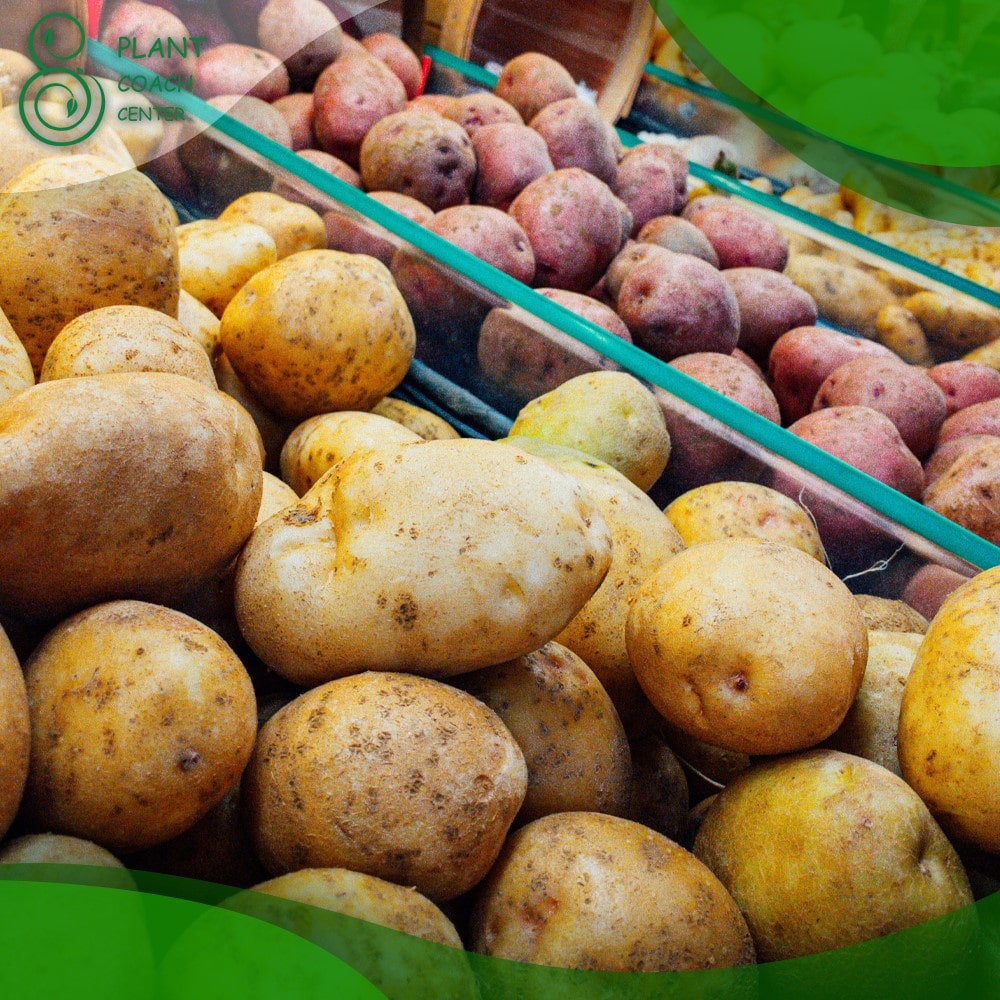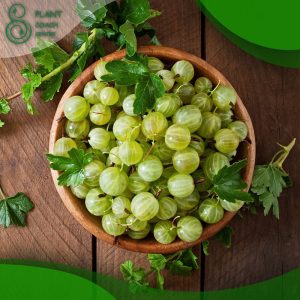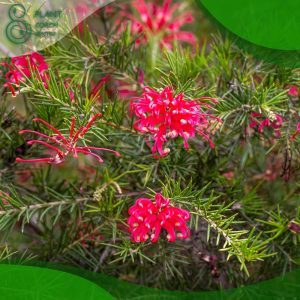When to Plant Charlotte Potatoes
introduction
Are you looking to grow Charlotte potatoes in your garden? Knowing when to plant them is crucial for a successful yield. In this comprehensive guide, we’ll cover everything you need to know about planting Charlotte potatoes, including common plant problems and how to solve them. Plus, we’ll explore the importance of plant coaching and how it can help you achieve a thriving garden. This guide is brought to you by Plant Coach Center, your go-to resource for all things gardening.
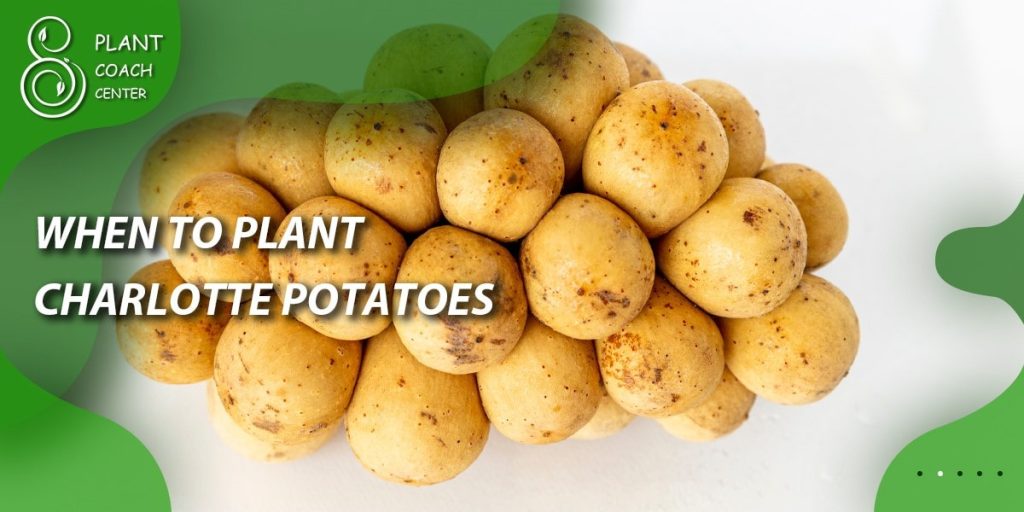
Understanding Charlotte Potatoes
Before we dive into planting, let’s first understand what Charlotte potatoes are. Charlotte potatoes are a popular variety that is known for their thin skin, firm texture, and buttery taste. They are a great source of vitamins and minerals, making them a healthy addition to any meal. Charlotte potatoes thrive in well-draining, fertile soil that is slightly acidic.
Ideal Growing Conditions
Charlotte potatoes grow best in cool weather conditions, between 60-70°F (15-21°C). They also require plenty of sunlight, at least 6 hours a day, to thrive. It’s important to note that Charlotte potatoes are susceptible to frost damage, so it’s best to avoid planting them in areas with late frosts.
Varieties of Potatoes
Charlotte potatoes are just one of many potato varieties available. Other popular varieties include Yukon Gold, Russet, and Red Potatoes. Each variety has its unique taste, texture, and growing requirements. When selecting a potato variety, consider your climate, soil type, and personal taste preferences.
Factors to Consider
When it comes to planting Charlotte potatoes, several factors can influence their growth and success. Here are some things to consider before planting:
Climate and Soil Types
Charlotte potatoes grow best in cool, moist climates, such as the Pacific Northwest of the United States or the United Kingdom. They thrive in well-draining, fertile soil that is slightly acidic, with a pH between 5.0 and 6.0.
Seed Potatoes vs. Planted Potatoes
Charlotte potatoes are typically grown from seed potatoes, which are small, whole potatoes that have been allowed to sprout. Planting seed potatoes ensures that you get a consistent crop of potatoes with the same characteristics as the parent plant. Alternatively, you can plant whole potatoes, but this can lead to uneven growth and a lower yield.
Choosing the Right Planting Site
When selecting a planting site for Charlotte potatoes, choose an area with plenty of sunlight and well-draining soil. Avoid planting in areas with heavy clay soil, which can lead to waterlogging and root rot.
Companion Planting
Companion planting is the practice of planting different crops together to enhance their growth and repel pests. Charlotte potatoes pair well with plants like beans, peas, and corn.
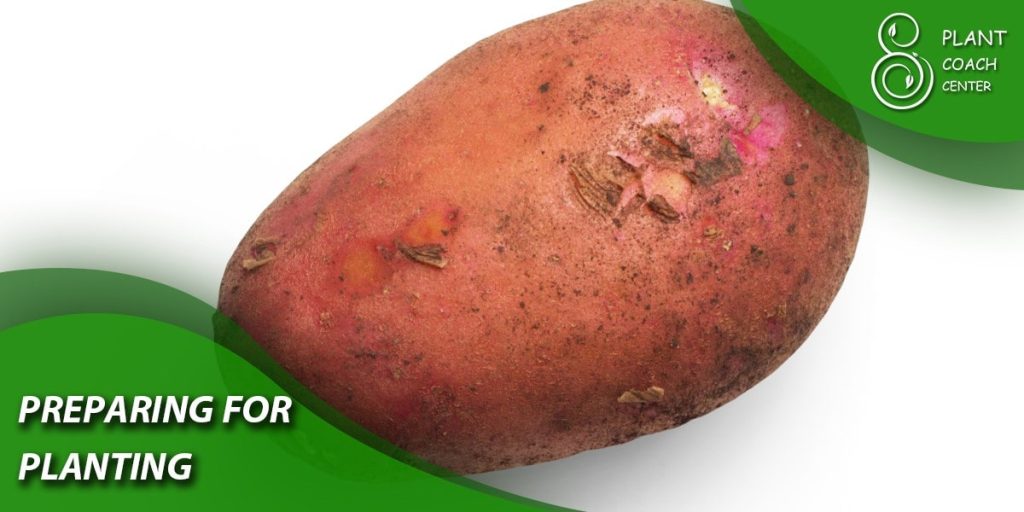
Preparing for Planting
Before planting Charlotte potatoes, you’ll need to prepare your soil and select your seed potatoes. Here are some tips for preparing for planting:
Soil Preparation and Testing
Charlotte potatoes require well-draining, fertile soil that is slightly acidic. Test your soil pH and add amendments like compost, bone meal, or blood meal to improve soil fertility and drainage.
Fertilization and Composting
Charlotte potatoes require plenty of nutrients to grow healthy and strong. Add a balanced fertilizer or compost to your soil before planting.
Seed Selection and Preparation
Select healthy seed potatoes that are free of disease and sprouting. Cut your seed potatoes into chunks with at least two eyes each. Allow them to dry for a day or two before planting.
Tips for Planting in Containers
If you have limited space, you can still grow Charlotte potatoes in containers. Choose a container that is at least 18 inches deep and wide. Fill with a well-draining soil mix and plant your seed potatoes 4-6 inches deep.
When to Plant Charlotte Potatoes
Knowing when to plant Charlotte potatoes is essential for a successful yield. Here’s a guide for planting in different seasons:
Spring Planting Guide
Plant Charlotte potatoes in the spring, when soil temperatures reach at least 45°F (7°C). Plant your seed potatoes 4-6 inches deep, 12-15 inches apart, and cover them with soil.
Summer Planting Guide
You can also plant Charlotte potatoes in the summer, but be sure to choose a planting site with partial shade to protect your plants from heat stress. Plant your seed potatoes 4-6 inches deep, 12-15 inches apart, and cover them with soil.
Fall Planting Guide
Fall planting is ideal for areas with mild winters. Plant your seed potatoes 4-6 inches deep, 12-15 inches apart, and cover them with soil. Be sure to mulch your plants toprotect them from frost.
Winter Planting Guide
In areas with mild winters, you can also plant Charlotte potatoes in the winter. Plant your seed potatoes 4-6 inches deep, 12-15 inches apart, and cover them with soil. Be sure to protect your plants from frost with a frost cloth or mulch.
Best Practices for Planting Charlotte Potatoes
To ensure a successful yield, follow these best practices for planting Charlotte potatoes:
– Choose healthy seed potatoes with at least two eyes each
– Plant in well-draining, fertile soil
– Plant in an area with plenty of sunlight
– Water regularly, keeping the soil moist but not waterlogged
– Fertilize or add compost to the soil before planting
– Hill up soil around your plants as they grow to encourage tuber development
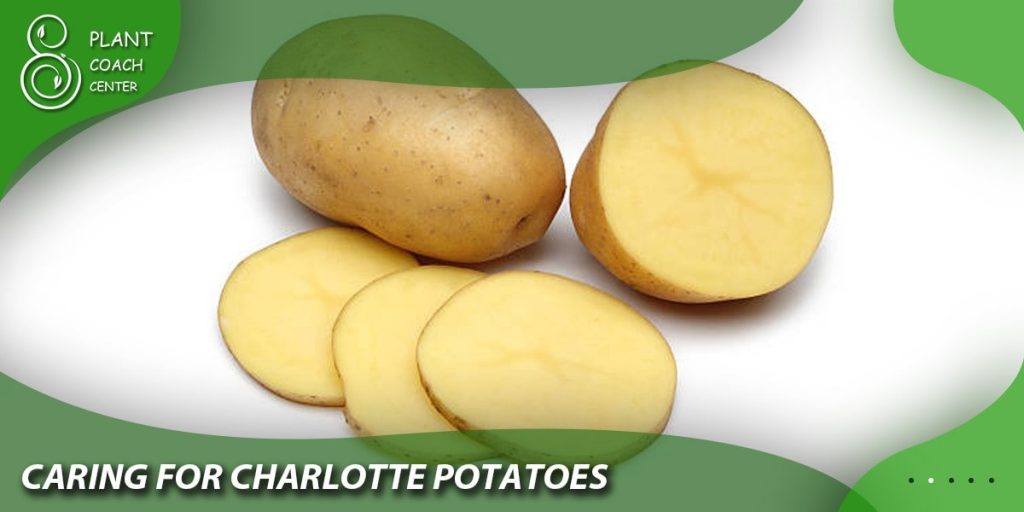
Caring for Charlotte Potatoes
Once your Charlotte potatoes have been planted, it’s important to care for them properly to ensure a successful yield. Here are some tips for caring for Charlotte potatoes:
Watering and Fertilization
Charlotte potatoes require plenty of water to grow healthy and strong. Water your plants regularly, keeping the soil moist but not waterlogged. Fertilize your plants with a balanced fertilizer or compost every 4-6 weeks.
Pest Control and Disease Management
Charlotte potatoes are susceptible to pests and diseases like potato beetles, blight, and scab. Keep an eye out for signs of pest infestations or disease and take action promptly. Consider using organic pest control methods like neem oil or companion planting to repel pests.
Harvesting and Storage
Charlotte potatoes are typically ready to harvest 10-12 weeks after planting. Carefully dig up your plants with a garden fork, being careful not to damage the tubers. Store your potatoes in a cool, dark, and dry place like a root cellar or basement.
Crop Rotation and Soil Management
Crop rotation is the practice of planting different crops in different areas of your garden each year to prevent soil-borne diseases and pests. Consider rotating your potato crop every 2-3 years. Additionally, consider adding organic matter like compost or cover crops to your soil to improve soil health and fertility.
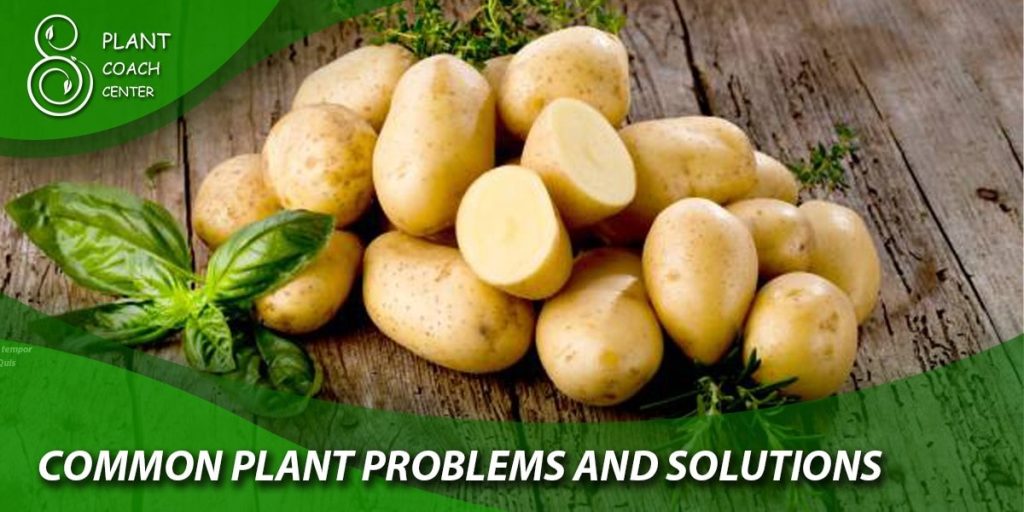
Common Plant Problems and Solutions
Even with proper care, Charlotte potatoes can still experience common plant problems like nutrient deficiencies, pest infestations, and diseases. Here are some solutions to common plant problems:
Nutrient Deficiencies
Charlotte potatoes may experience nutrient deficiencies like nitrogen, phosphorus, or potassium deficiencies. Add a balanced fertilizer or compost to your soil to provide your plants with the necessary nutrients.
Pest Infestations
Charlotte potatoes are susceptible to pests like potato beetles, aphids, and spider mites. Use organic pest control methods like neem oil or companion planting to repel pests.
Diseases
Charlotte potatoes can also experience diseases like blight, scab, or blackleg. Keep an eye out for signs of disease and take action promptly. Consider using disease-resistant varieties or crop rotation to prevent disease.
Environmental Factors
Charlotte potatoes can also be affected by environmental factors like frost, heat stress, or drought. Protect your plants from frost with a frost cloth or mulch, provide partial shade in hot weather, and water regularly to prevent drought stress.
Troubleshooting Tips
Identifying and solving plant problems can be challenging, but with these troubleshooting tips, you can be better prepared to handle common plant problems:
Identifying Plant Problems
Identifying plant problems can be tricky, but look for signs like yellowing leaves, wilting, or discoloration. Consider taking a sample of your plant to a local garden center or extension office for diagnosis.
Preventative Measures
Prevention is key when it comes to plant problems. Keep your garden clean and free of debris, practice crop rotation, and use disease-resistant varieties to prevent problems before they start.
Treatment Options
If you’ve identified a plant problem, consider treatment options like organic pest control methods, fungicides, or pruning. Be sure to follow the instructions on any treatment product carefully.
Plant Coaching for Charlotte Potatoes
Plant coaching is a great way to get personalized advice and solutions for your gardening problems. At Plant Coach Center, we offer customized coaching solutions for all your gardening needs, including planting Charlotte potatoes. Our coaching tools and resources can help you achieve a thriving garden and a successful yield.
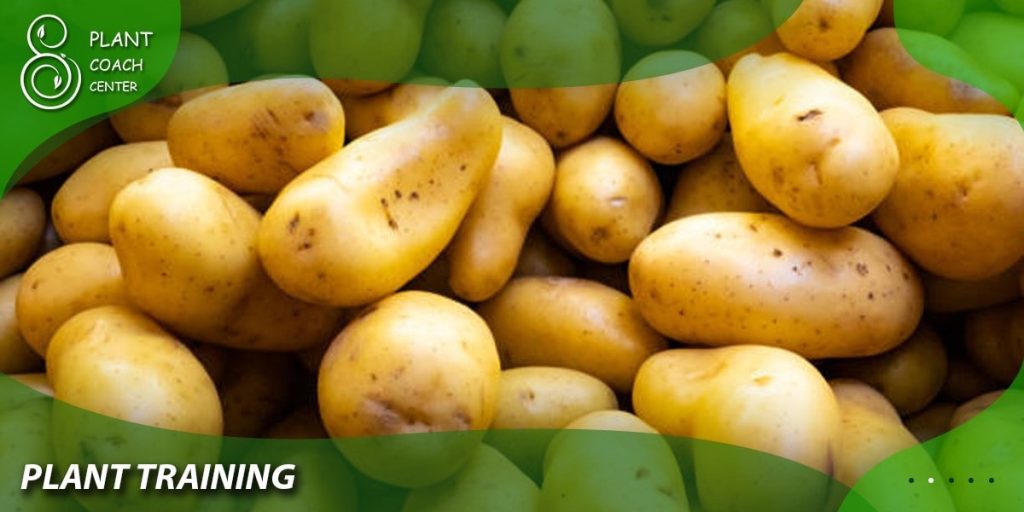
Conclusion
Charlotte potatoes are a delicious and nutritious addition to any meal, but planting them requires careful consideration of factors like climate, soil type, and planting time. By following the tips and techniques in this guide, you can ensure a successful yield. Don’t forget to take advantage of the resources available at Plant Coach Center for personalized coaching and solutions to your gardening problems.
When should I plant Charlotte potatoes?
Spring.
Is there a specific month to plant Charlotte potatoes?
April or May.
Can I plant Charlotte potatoes in autumn?
No.
What is the best time to sow Charlotte potatoes?
When the soil has warmed up in spring.


